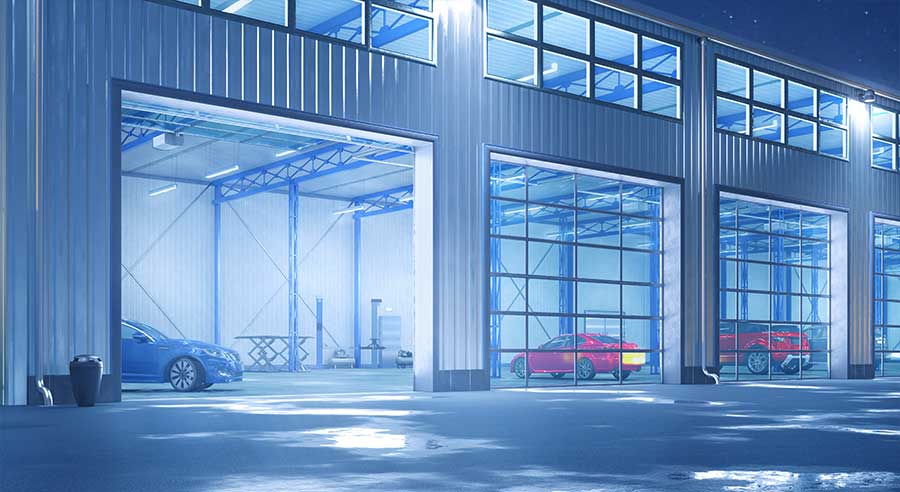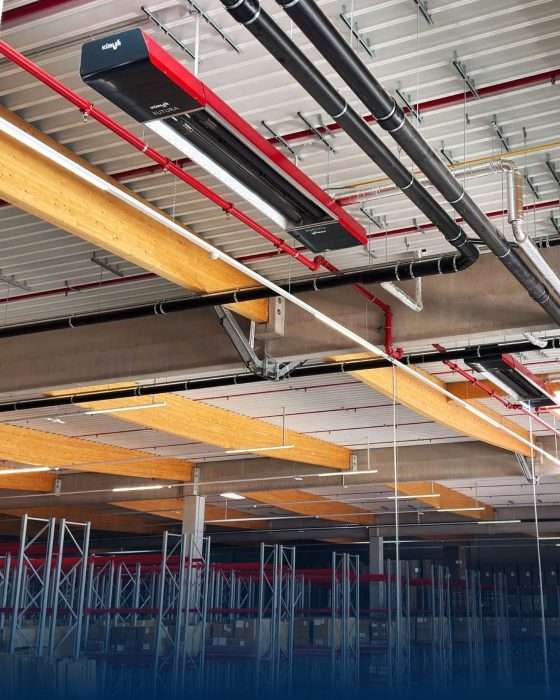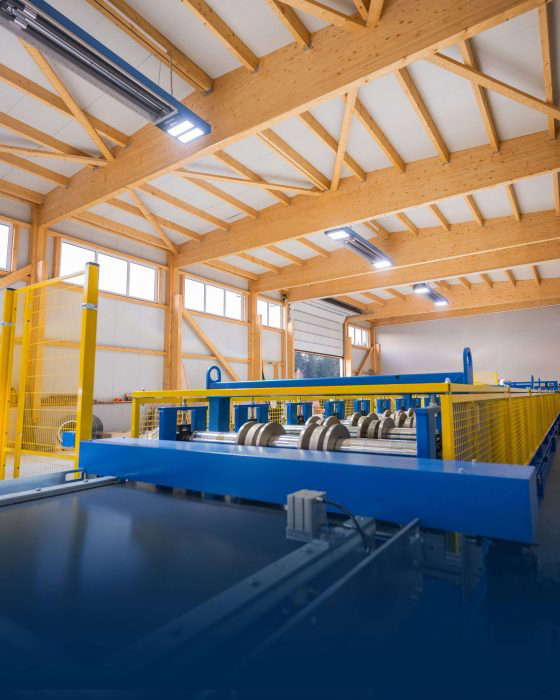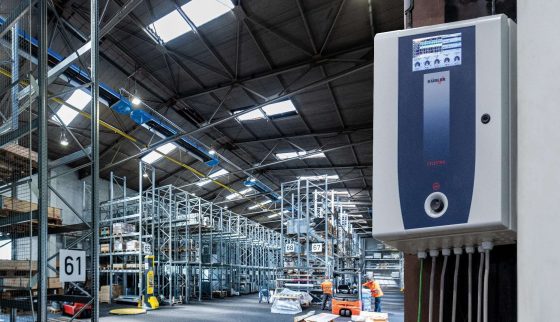Focus on "open hall doors"

But the question arises: can we afford to simply burn off expensive heat through open hall doors in winter?
The hot topic of "open warehouse doors" is a hotly debated issue. Most of all between those who are responsible for reducing operating costs in companies and those who are responsible for ensuring that production and delivery processes run as smoothly as possible. Who thinks about closing doors during day-to-day business that will have to be opened again shortly afterwards anyway?
Proven solutions to this problem rely on digital intelligence to control hall heating systems. Special tools record the processes at the doors and switch off the heaters specifically for the time they are open. Over the heating period, this ensures a significant reduction in energy consumption and costs. At a company in Laubach, the door opening times were recorded and optimized in this way - this alone significantly reduced operating costs. Interestingly, these solutions can be easily retrofitted as modules in existing control systems.
Would you like to find out more about these control solutions? No problem! You can reach the hall heating specialists at KÜBLER under Contact.
By the way: we will reveal the next hot tip on the subject of ENERGY EFFICIENCY & HALL BUILDINGS in a week's time.
-
Germany has a huge number of buildings whose heating systems waste energy every day and produce far too much CO₂. With regard to the use of renewable energies and modern technologies, it is by no means just an old stock that urgently needs to be refurbished. Many newly built halls are also equipped with outdated [...]
-
Mr. Kübler, your company produces heating systems for halls. These only make up a small proportion of all buildings in Germany. Why is it nevertheless important to save as much energy as possible in this area? That's right, halls only make up around 1.5 percent of all buildings in Germany, so most people don't notice them. Even [...]
-
Christmas is once again approaching surprisingly quickly - and, unfortunately, one or two challenges are on the horizon. From 3G and 2G plus to the next increases in energy prices. Congratulations if you have already converted your hall heating to an economical system from KÜBLER. This is a really good decision in many respects.
-
What is a dark radiator (really)? In everyday life, the term "dark radiator" is often used interchangeably with infrared radiant heaters. It is also often used to refer to electric infrared heaters. People even talk about electric dark radiators. From a technical point of view, however, this is not really correct. Dark radiators in the true sense of the word are gas-powered infrared heating systems that bring heat into halls in a particularly efficient way. To do this, […]





